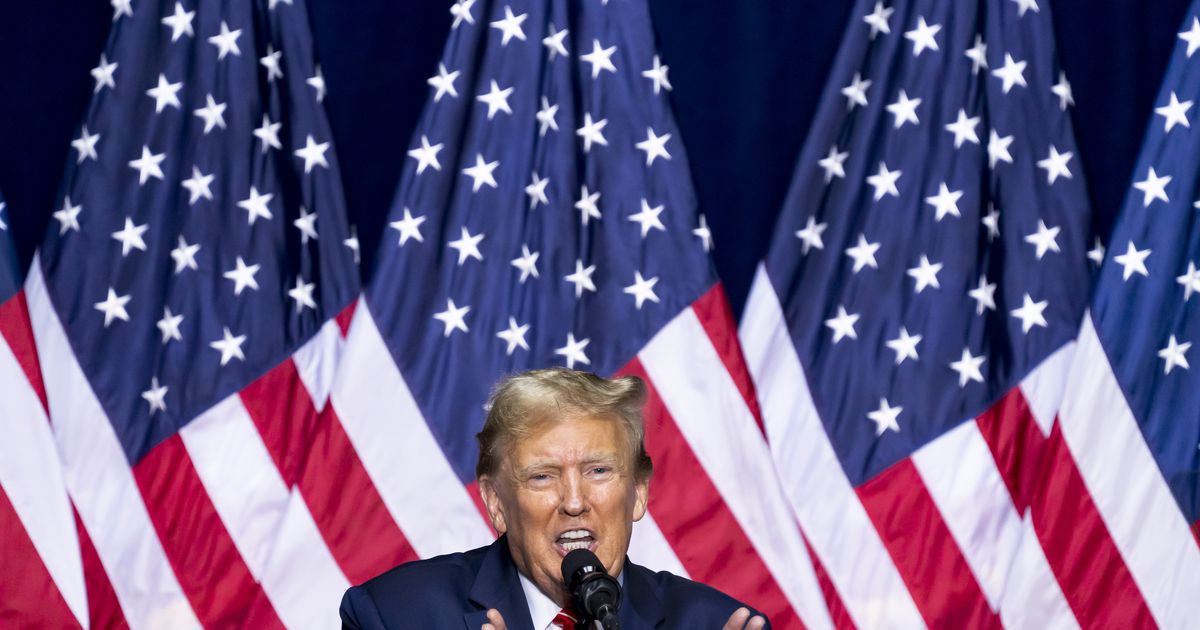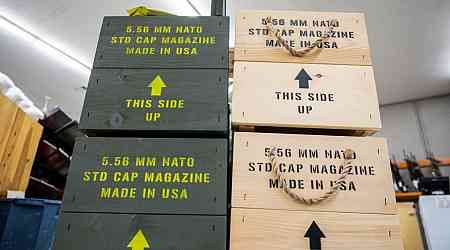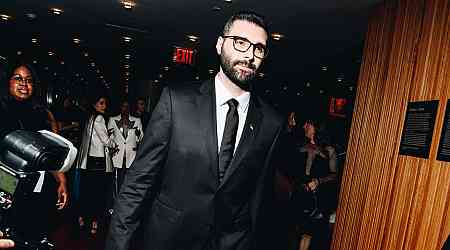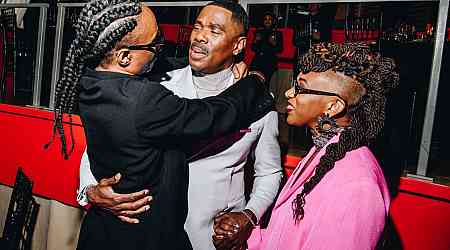On Saturday night, while Iran fired drones and missiles into Israel, Donald Trump talked a lot about chaos.
“What’s going on with the world?” Mr. Trump said while telling a story onstage. “Everybody’s fighting. Russia, Ukraine, Israel; the Middle East is blowing up. Everything’s blowing up. China’s going to be next with Taiwan; because of weakness, China’s going to be next. What’s going on?”
Two dozen American flags whipped around behind him on a cold, crystal-clear night at a rally near Allentown, Pa. People had waited hours in a line that wound down and around a hill. As they waited, wistful songs from the 1960s about a less pained future — Frank Sinatra’s “The Best Is Yet to Come,” Elvis Presley’s “If I Can Dream” — could be heard.
Mr. Trump had opened the rally by saying that Israel was under attack, adding that “it would not have happened if we were in office — they know that, we know that, everyone knows that.” Onstage, at rallies over the last year, Mr. Trump has done these alt-universe loops in which if the election hadn’t been taken from him, nothing bad would have befallen the world — no embarrassing Afghanistan withdrawal, no Hamas attack on Israel, no Russian invasion of Ukraine, no inflation. Sometimes, with the way Mr. Trump talks, he can subtly lock more and more people into his inability to process his 2020 defeat. He does this by pairing his personal misfortune with that of the entire globe.
But on Saturday night, these hypotheticals ended someplace else. When talking about the world being ablaze, Mr. Trump told the crowd about something Viktor Orban, the illiberal prime minister of Hungary, had said: “Bring Donald Trump back as president and it’ll all stop.” As Mr. Trump put it, “He said something else, and I wouldn’t say it, I wouldn’t really like the word. ‘China was afraid of Donald Trump, Russia was afraid of Donald Trump, everybody was afraid of Donald Trump’ — I don’t want to say that. I want to say they respected me.”
Quantifying chaos is hard to do, but the last eight years have been some of the most chaotic in decades in American politics. And for the last year, Mr. Trump has talked a lot about ending all this chaos simply through his resumption of the presidency — a kind of leviathan, superman thing. Before the rally, the Trump campaign played a movie-trailer-esque video that warned of nuclear annihilation.
There is a theory advanced by some Republicans that Mr. Trump’s chaos and unpredictability deters others’ impulsive behavior — that other leaders could not quite read how the United States might respond, so the anxiety provoked by that uncertainty stalled out otherwise bigger and more drastic shifts in the world. After she left the administration, Nikki Haley, the former ambassador to the United Nations, framed her and Mr. Trump’s approaches to diplomats in the manner of a good-cop-bad-cop routine. “He would, like, ratchet up the rhetoric,” she said in 2018, “and then I would go back to the ambassadors and say, ‘You know, he is pretty upset. I can’t promise you what he is going to do. I’ll tell you, if we do these sanctions, it will keep him from going too far.’”
Mr. Trump himself will allude to his own chaos as preventative. Onstage, he sometimes claims he prevented Vladimir Putin from invading Ukraine earlier on the strength of personal negotiation in which Mr. Trump threatened a wild action. “‘Vladimir, don’t do it, don’t do it — if you do it, this is what’s going to happen.’ Someday I’ll tell you what I said,” Mr. Trump said at an Iowa rally on Oct. 7. “He said, ‘No way you’ll do that.’” I said, ‘I will. I will; I’ll do it. ' And he didn’t believe me.”
Then, in a possibly telling insight into how Mr. Trump views politics, he added: “But, he believed me 10 percent! That’s all you needed!” He said the same was true of Xi Jinping and Taiwan — Mr. Xi had believed him 10 percent and “that’s enough.” The idea of Mr. Trump injecting just enough creeping doubt or pain into the equation of how a person perceives what he’s saying explains a lot about American politics over the last eight years.
When you press on different parts of Mr. Trump’s reasoning, you find problems. For one thing, talking to Tucker Carlson last year, Mr. Orban framed his praise the opposite way from Mr. Trump in Pennsylvania: “The best foreign policy of the recent several decades belongs to him. He did not initiate any new war. He treated nicely the North Koreans and Russia, even the Chinese, you know. He did the policy that was the best one for the Middle East, the Abraham Accords.” And there are real crosscurrents even at Trump rallies: At the Pennsylvania event he opened by saying, “God bless Israel.” But at one point Trump supporters also chanted “Genocide Joe” — the chant about the president’s handling of Israel’s war in Gaza and the thousands of Palestinians who’ve died — to which Mr. Trump said, “They’re not wrong.”
Since the pandemic began, in particular, it can feel like we live in a more precarious, interlocking world, where one bad development can threaten even worse ones, like a wider regional conflict in the Middle East. Mr. Trump talks a lot about what wouldn’t have happened, but a lot might still happen next year, regardless of whether he or Mr. Biden is elected.
Politics involves the art of perception, particularly during campaigns. And Mr. Trump knows how perception works — how to build up themes and crush opponents. Those skills have reshaped American politics. But not everything works like that.
One thing he barely talked about on Saturday night was abortion. “Sometimes with Great Events come difficulties,” he posted recently about how he helped end Roe v. Wade, just before announcing that he would leave the issue to the states, rather than pursuing a federal ban. But leaving abortion to the states also doesn’t resolve the issue — one state supreme court can essentially end in vitro fertilization programs, and another can ban abortion in the space of a month.
Mr. Trump clearly wants this to go away, for people to not talk about it, for voters to just kind of land on a middle ground, quietly. But people have strong beliefs about what abortion law should look like, beliefs that exist outside of Mr. Trump, in part because — like war or the pandemic — abortion policy is not one of perception. Abortion is banned or permitted in real life.
This article originally appeared in The New York Times.

























